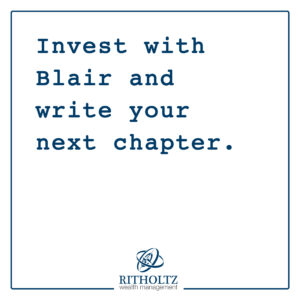My Christmas gift this year was an Oura ring. Oura is a health-tracking device you wear all day and night. It measures your sleep patterns, heart rate, activity, heart rate variability, recovery, and a host of other data points. I’ve been curious about health data for about a year. At every physical exam, I am told I have stellar blood work and vitals, but I know that stress is a lurking health risk. I am living through what is likely the most stressful time of my life: at peak career and raising two young children. I bought a Renpho weight scale last year, which measures bone density, muscle mass, BMI, and visceral fat as well as weight. The Oura ring is the next logical step in collecting data.

Two weeks of data is insufficient to understand my baseline metrics, but I have learned two things about myself. My stress levels were super high when the kids were home on winter break and dropped immediately when school started this week. While embarrassing, it confirms something I long suspected: raising little kids does stress me out. The second is that alcohol impacts my sleep and ability to recover properly at night, even if I have one glass of wine. My heart rate doesn’t decrease until early morning, and although I sleep fine, I wake up feeling unrefreshed. Now, I have the data to prove it.
Investing and building financial plans requires a lot of data. We need to formulate assumptions about market returns, inflation, and volatility in the market. Clients must provide data about income and expenses, both now and in the future. A lot of this data is unknown and will change. I often find myself repeating the phrase “garbage in, garbage out” when presenting financial plans. The output, or results, of the plan are only as good as the data and assumptions we put into it. This is the reason I approach financial planning as an ongoing process and not a fancy report to present one time, only to gather dust in the back of a drawer later.
As AI begins to show promise for the future of financial planning, I can’t help but wonder what the “Oura Ring” equivalents will be for personal finance. Perhaps AI bots will track our spending and savings patterns, providing helpful nudges each morning to keep us heading in a positive direction. Trend lines will illustrate how our spending categories shift throughout the years. Most people I meet do not truly have a handle on how much they spend each year. Most of us don’t really want to know, but what if data could help us spend more wisely?
I am sure there will be AI bots to track our portfolios, alerting us of drifts in asset allocation, cash balances, and unexpected volatility. When I interviewed Michael Mauboussin at a CFA event last spring, I asked him how machines could assist humans in making investment decisions. His presentation showed that investing outcomes are more a function of luck than skill. Machines are best used in areas where skill dominates over luck. The application of AI will be more important than building the actual tools.
Data is driving efficiency and productivity in all corners of our daily lives, and it will only become more important. I am both excited and nervous about how it will shape our future. Ten years ago, I could never have imagined wearing a ring 24/7 to track my health metrics, yet here we are.



